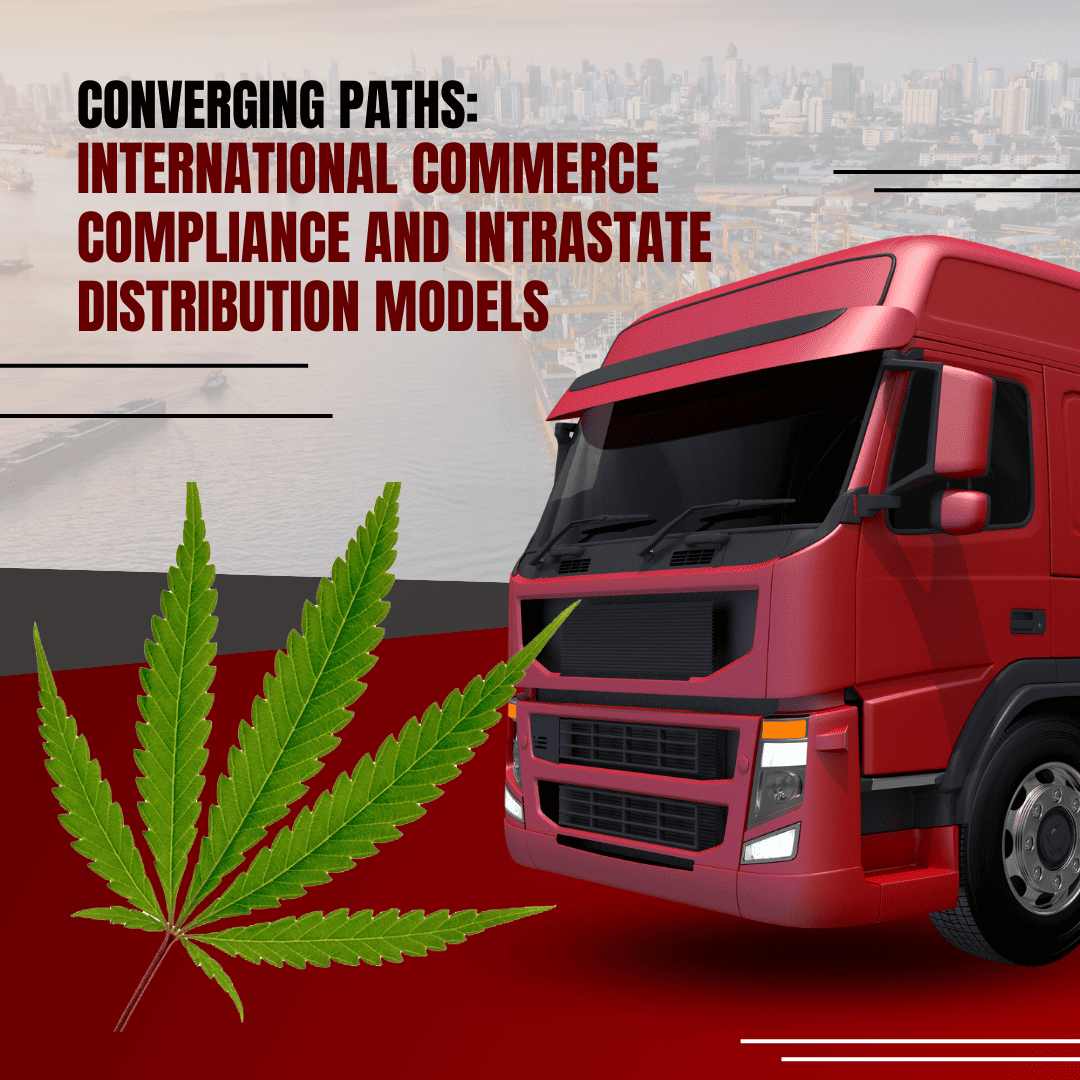
As the cannabis industry continues to expand globally, the complexities of compliance in both international and intrastate markets have become increasingly apparent. Interestingly, these two seemingly distinct realms—international commerce and intrastate distribution—share significant parallels and are on a collision course.
In this blog post, we will explore the convergence of compliance requirements between international and intrastate cannabis markets and discuss how understanding global distribution models can inform interstate commerce compliance in the United States and its intrastate models and vice versa.
- Similarities in Compliance Principles: Both international commerce and intrastate distribution models require adherence to a complex web of regulations to ensure legality, safety, and transparency. These two realms share key compliance principles such as licensing, product quality control, record-keeping, security, testing, and labeling. Understanding and implementing these principles is critical to maintaining compliance in domestic and international markets.
- The Need for Harmonization: With the continued growth of the global cannabis industry, harmonization of compliance standards becomes imperative. Just as international commerce relies on international trade agreements and organizations to establish common regulations and protocols around standards such as EU-GMP compliance, the need for harmonization within the intrastate distribution landscape is becoming increasingly evident. States within the United States can learn from one another’s regulatory frameworks and collaborate to create unified compliance standards that ensure consistency and facilitate the movement of cannabis products across state lines. Indeed, while this has started with ASTM’s D37 standards, the Federal Government will eventually have to quilt together the patchwork of regulations between various states to effectively regulate common standards between states in addition to other countries upon federal legalization.
- The Role of Interstate Commerce Compliance: As individual states in the United States develop their own intrastate distribution models, the question of interstate commerce compliance looms large. While current federal regulations prohibit the interstate transportation of cannabis, the evolving landscape may necessitate a policy shift to accommodate the growing demand for cross-state trade. Understanding international commerce compliance requirements is crucial, as it can serve as a blueprint for future interstate trade regulations, ensuring seamless and compliant movement of cannabis products between
countries AND states.
- Knowledge Transfer and Global Adaptation for domestic distribution models: As countries worldwide explore domestic distribution models, they can look to the United States as a source of knowledge and lessons learned. The state-by-state approach in the U.S. provides valuable insights into developing and implementing international compliance frameworks by each country failing to implement domestic licensing and distribution in either medical or retail. By adapting and tailoring these models to their own unique contexts, countries can expedite the establishment of compliant distribution systems and leverage the expertise gained from the U.S. experience.
- iComply: Navigating Compliance in an Evolving Landscape: In this era of convergence, cannabis policy and compliance experts like iComply are pivotal in supporting businesses and governments in navigating the intricacies of both international and domestic (intrastate) cannabis distribution. By providing comprehensive compliance management solutions, iComply helps companies to stay ahead of the evolving regulatory landscape, ensuring adherence to local and international compliance standards. More importantly, we help people decide what works best for their cultures, existing industries, legacy markets, public sentiments, and policy objectives through international cannabis policy and compliance.
The parallels between international commerce compliance and intrastate distribution models in the cannabis industry are undeniable. As countries adopt domestic distribution models and the United States grapples with interstate commerce compliance, harmonization and knowledge transfer become increasingly crucial. By leveraging the lessons learned from both realms, businesses, and regulatory bodies can collaborate to establish robust compliance frameworks that foster the growth of a responsible and compliant global cannabis industry.
Disclaimer: This blog post is for informational purposes only and should not be construed as legal or financial advice. Businesses and individuals should consult with legal and compliance professionals to assess their specific compliance requirements and navigate the complex regulatory landscape of international and intrastate cannabis distribution.


 countries AND states.
countries AND states.